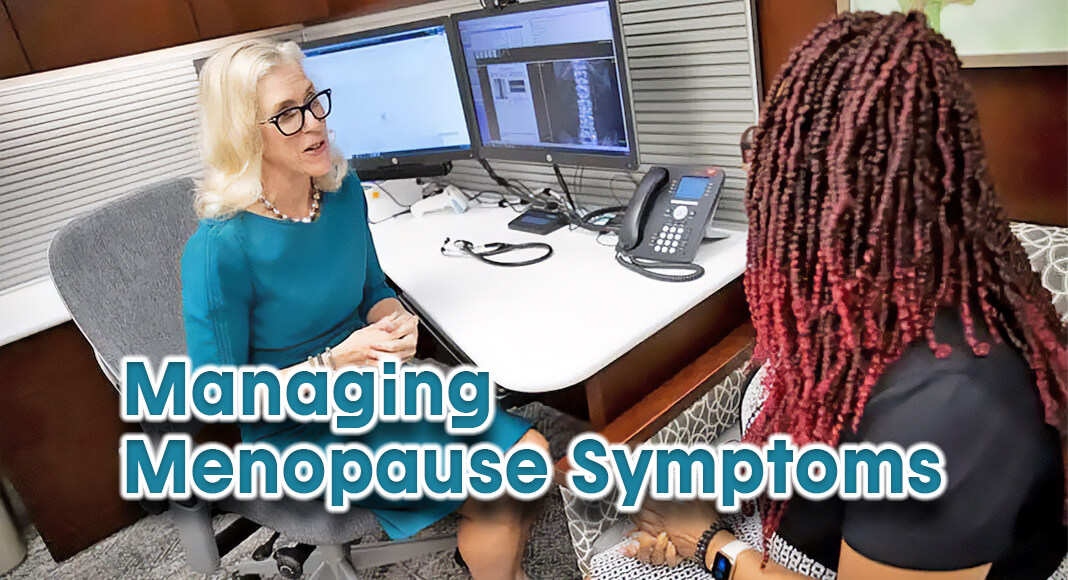
Mega Doctor News
By Alison Satake, Mayo Clinic News Network
Hormone therapy is the most effective treatment for managing menopause symptoms, particularly hot flashes, night sweats and sleep disturbances. However, many women hesitate to use hormone therapy due to safety concerns, according to new Mayo Clinic research.
These concerns may stem from a 2002 study that showed an increased risk of breast cancer, coronary artery disease, stroke and blood clots from specific hormone therapies such as conjugated equine estrogens and medroxyprogesterone acetate.
“The lingering fear caused by the initial Women’s Health Initiative trial results in 2002 has promoted a false belief of a lack of safe options for treating menopause symptoms. This has most likely affected how healthcare professionals approach evaluation of menopause symptoms and has also conceivably led to an avoidance of discussions regarding menopause symptoms during primary care visits,” says Mayo Clinic endocrinologist Ekta Kapoor, M.B.B.S., senior author of the new study, published in the journal Menopause.
More recent studies have established the relative safety of hormone therapy when started by women in their 50s or those within 10 years of menopause. Also, research indicates estrogen therapy, when administered alone, offers greater benefits and carries a lower risk than the combination of estrogen and progestin. Nonhormone options also are available to treat menopause symptoms.
Another recent study led by Mayo Clinic researchers found short-term hormone therapy for menopause symptoms did not lead to long-term cognitive impairment among women with good cardiovascular health.
“These findings may offer reassurance for women considering menopausal hormone therapy while adding to the growing body of research supporting the importance of timing for menopausal hormone therapy,” says Kejal Kantarci, M.D., director of the Women’s Health Research Center at Mayo Clinic and senior author of the study, published in PLOS Medicine.
Perimenopause and menopause
Dr. Stephanie Faubion, co-author of the Menopause study and director of Mayo Clinic’s Center for Women’s Health, says for some people, experiencing menopause and its precursor, perimenopause, can be confusing.
She says it also can be a murky topic for medical providers due to a lack of training in menopause management.
Dr. Faubion says women enter menopause when they’ve gone a full year without menstruation.
“Perimenopause is the time leading up to that, and for many women, it can last a long time — six to 10 years is possible,” Dr. Faubion says.
That’s when you may experience irregular periods and a host of symptoms, including hot flashes, night sweats, sleep issues and mood changes.
Dr. Faubion says women also may experience “sexual symptoms — low sexual desire, vaginal dryness, pain with sexual activity.”
She says there’s been a lack of education and resources for women regarding menopause. “One reason is that menopause can happen at different ages for women. So anything after age 45 is considered normal for menopause,” says Dr. Faubion.
And perimenopause can begin as early as 35.
“In general, women aren’t hearing this from their medical providers, which is problematic because, while some women may have no symptoms going into menopause, many women actually have a laundry list of symptoms, and sometimes they’re very confusing to sort out,” Dr. Faubion says.
The researchers encourage both patients and providers to talk about menopause symptoms, how frequently they occur and what impact they can have on quality of life and work productivity.
“Women are often embarrassed to report the symptoms, so we need to normalize the experience. The goal is to empower women with information that will help them tap into appropriate resources, advocate for themselves and ensure they get on the right treatment plan,” says Dr. Kapoor.










